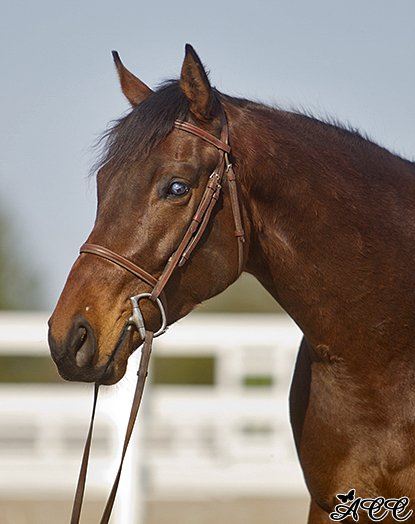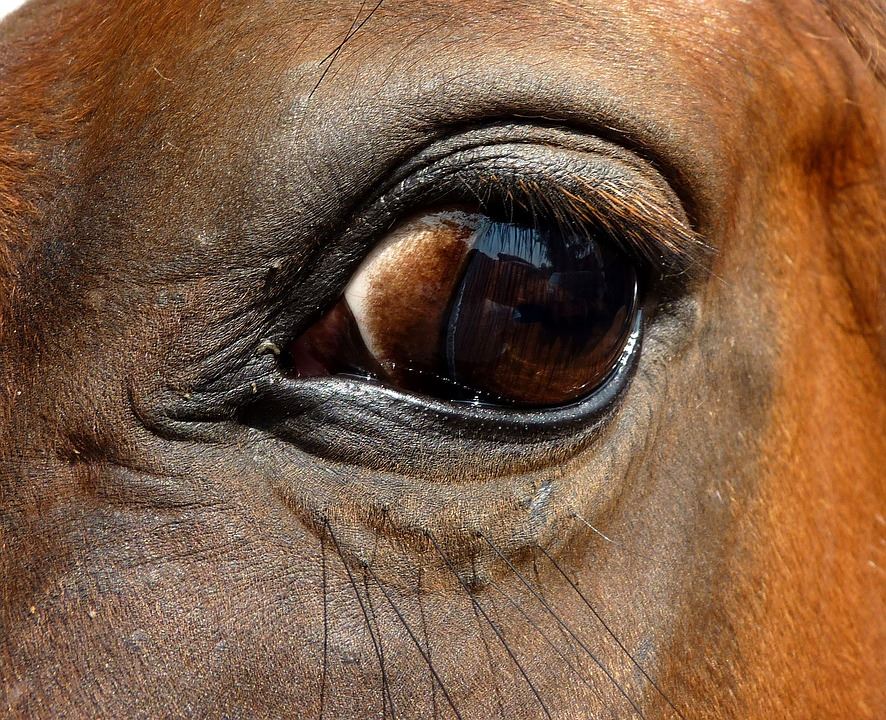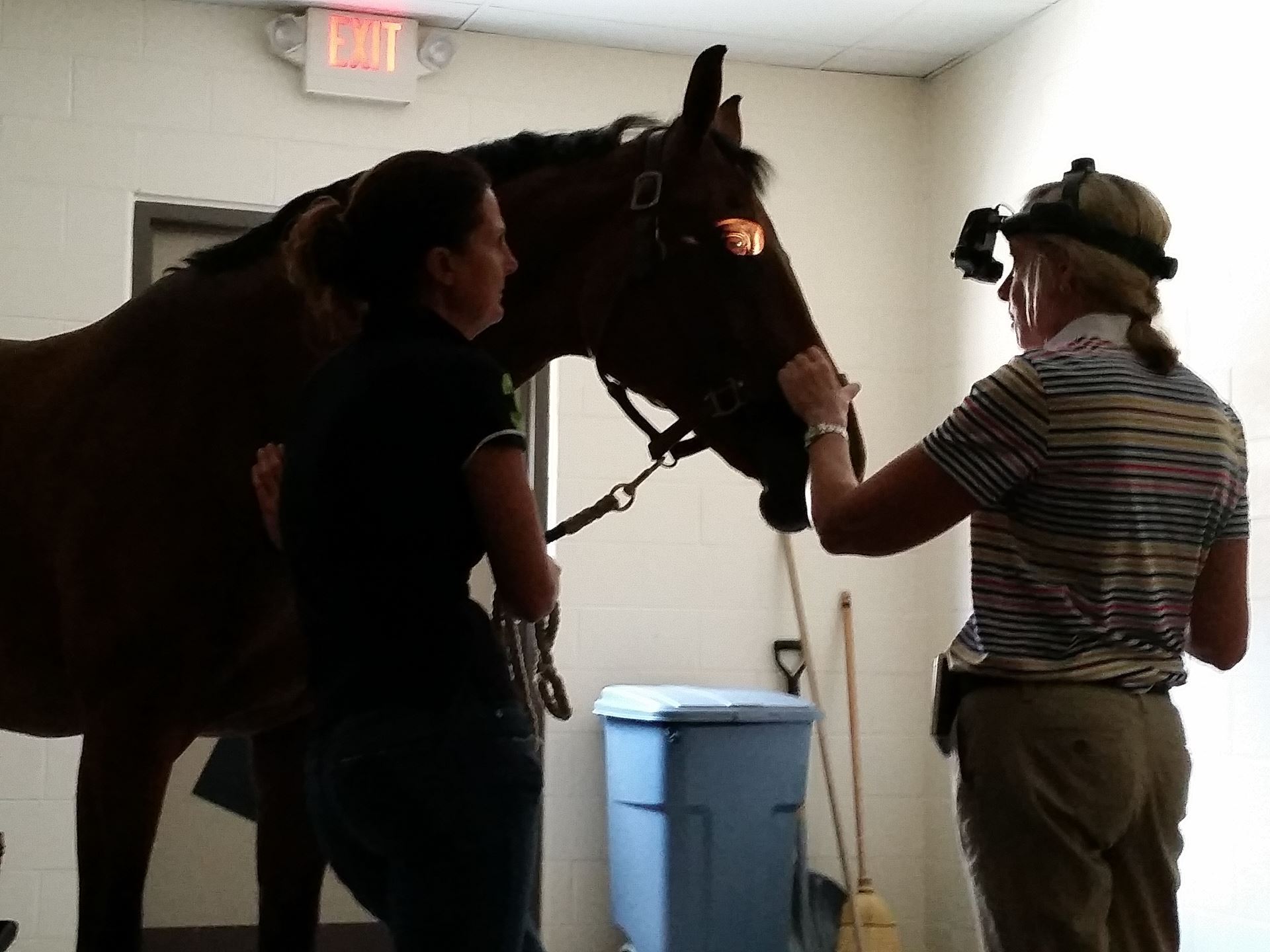It can be disconcerting when your normally sure-footed steed begins to trip or when your no-nonsense Steady Eddie starts to spook at things that wouldn’t normally faze him. So what’s the deal? Is it the weather change? Is he being lazy? Maybe … but maybe not: Vision loss may be to blame.
By Sarah E. Coleman
 Photo by Audrey C. McLellan
Photo by Audrey C. McLellan
Vision loss is not a death knell for horses or their competitive careers. While some loss may be dramatic, many times the loss of equine eyesight is gradual and over time; often the horse can adapt to his new vision and still be ridden.
There are many causes of vision loss in horses, including chronic uveitis, permanent damage from EPM and other diseases, acute viruses, injury, cancer and more. No matter the cause, the ways you can make your horse more comfortable are the same.
Testing Your Horse's Vision

The signs that your horse may be losing his vision can be subtle, from a peek at a normally unspooky fence when light is low to fairly dramatic reactions for a normally-well-behaved horse, like being reluctant to walk from bright sunlight into a darkened barn or trailer.
Horses tend to adapt to vision loss quite easily, which can be a hindrance for the humans caring for them: We may not pick up on the loss as readily as we should! If you think your horse may be losing some of his site, try these quick tests:
- Walk your horse over a hose on the ground. Does he cock his head to look at the hose out of only one eye? Does he step directly on the hose or is he careful about stepping over it, indicating that he can see the hose? Cover one eye at a time and walk your horse over the hose, noting any differences in how he places his feet.
- Cover one of your horse’s eyes with a fly mask or other soft blinder and toss cotton balls into his field of vision in the eye that is uncovered. Is he able to follow the objects with his uncovered eye?
- With one of your horse’s eyes covered, wave your hand about six inches from the uncovered eye. Does he blink? If he can see well, he should.
- Walk your horse over ground that changes drastically in color (like from black pavement to concrete or from a sand ring onto dark mulch). Does he act afraid to step onto the new color? Horses that are having a hard time seeing are sometimes reluctant to step onto something with a different color.
Next Steps
So, you’ve performed all the tests and feel confident that your horse is having vision issues. Now it’s time to call the vet. So, what will your vet do differently than you have?

- She will visually examine at the horse’s eye, looking for anything abnormal about how the eye looks structurally.
- She will examine him physically to see if he has more marks on one side of his body or head than the other, which would indicate that he is bumping into things and may not be able to see well.
- She will watch him to see how he reacts to a stimulus on one side of his body. She may then observe his behavior while he is turned out and while in a stall to see if he behaves the same way whether humans are interacting with him or not.
- She will also perform the “menace test” by making a menacing gesture toward the horse’s eye (the same test you performed above).
Caring for the Visually Impaired Horse
If you’ve determined that your horse is in fact losing his site, it’s important to make him as comfortable as possible in his surroundings. You will need to:
- Give him safe housing he is familiar with
- Consider turning him out with only one good buddy; herd situations can be hard as there is much for the horse to deal with: ranking, food competition, new horses, etc.
- Provide safe fencing with no tight corners, holes, equipment or downed trees
- Keep food and water in open locations that are easy for him to find
- Keep his routine as close to the same every day as possible so he feels confident even as his vision worsens
- Don’t shave his whiskers
- Speak to him – often!
